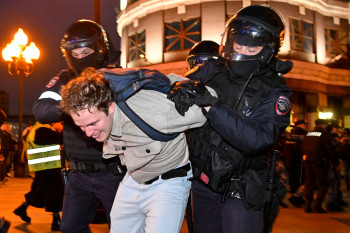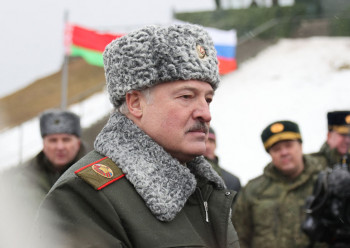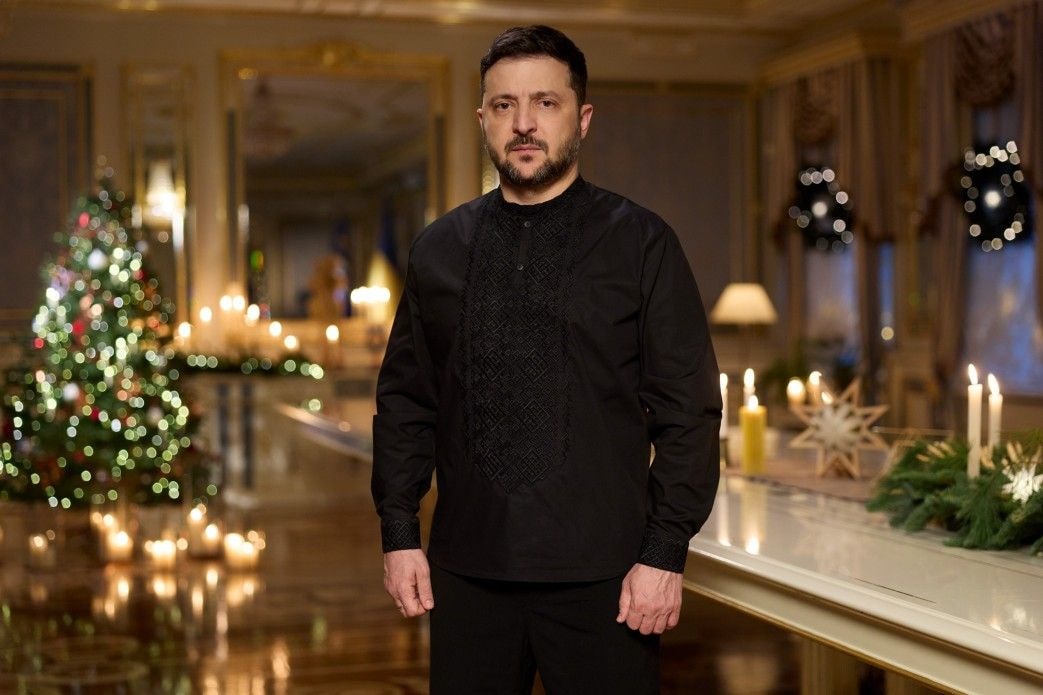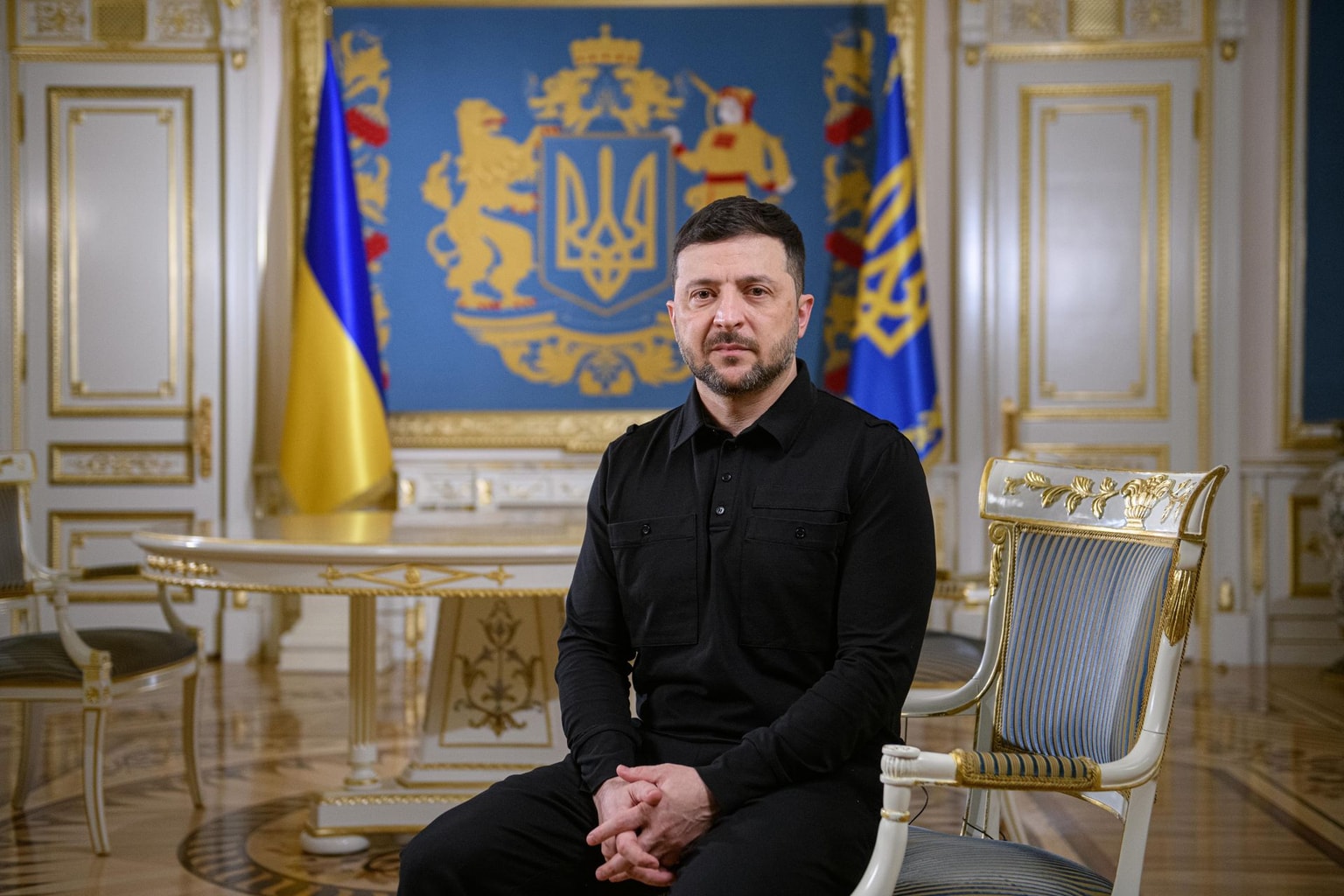Belarus Weekly: Moscow announces mobilization, Belarusian troops on 'high alert'
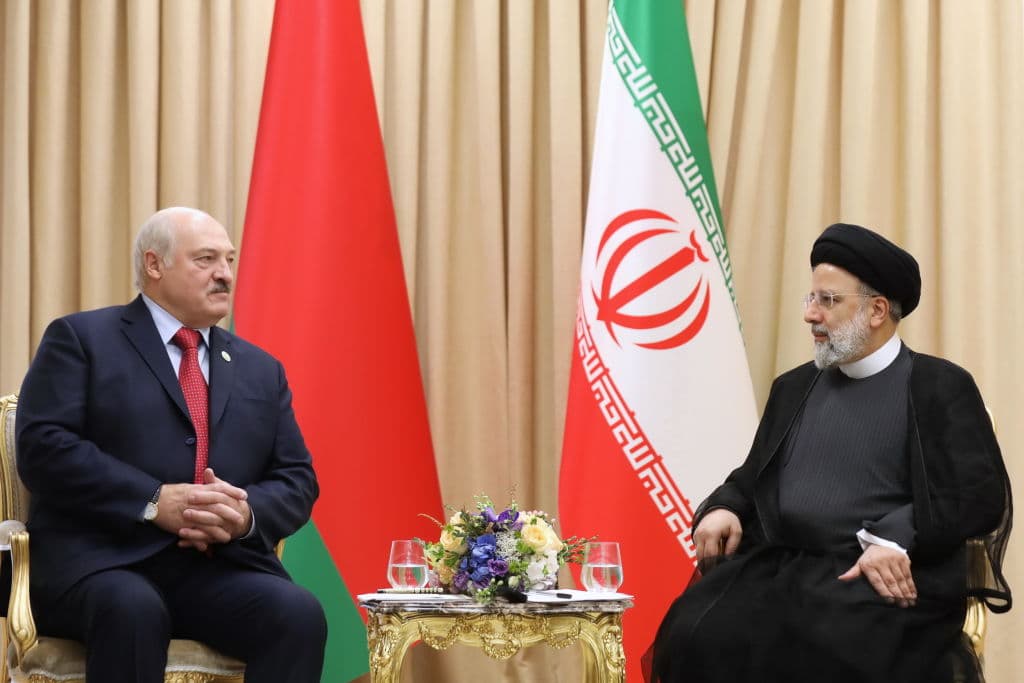
As Moscow announces "partial mobilization" of its citizens amid Russia's full-scale war against Ukraine, Belarusian dictator Alexander Lukashenko has yet to follow suit.
However, Lukashenko cements his regime's role as a co-belligerent in Russia's war as he emphasizes his support for Russian forces.
Tensions mount as Belarus is among a few countries that vote against allowing President Volodymyr Zelensky to give a prerecorded address at the UN General Assembly meeting.
While Minsk decides to join the Shanghai Cooperation Organization, Latvia begins building a fence along its border with Belarus.
Belarusian authorities strip over 80 former Belarusian servicepeople, law enforcement, and prosecutors of their titles for opposing Lukashenko's regime.
Persecution against Belarusian political activists and civil society continues as a journalist, railroad partisan, and political prisoner receive harsh sentences.
Belarus abstains as Russia announces partial mobilization
In an address on Sept. 21, Russian President Vladimir Putin announced "partial mobilization" for Russian citizens in an attempt to draw an additional 300,000 soldiers.
The same day, State Secretary of Belarus' Security Council Aliaksandr Valfovich said mobilization in Belarus is unnecessary. "The people of Belarus and the country are mobilized as it is," Valfovich said following a meeting with his Russian counterpart Nikolai Patrushev.
Belarus has not officially announced mobilization.
Belarusian political analyst Valer Karbalevich suggested that Minsk likely won't declare official mobilization despite Moscow's announcement.
Meanwhile, Belarusian dictator Alexander Lukashenko said at a Belarus' State Security Council meeting on Sept. 20 that the country's military should be on high alert to ensure that Russia is not "stabbed in the back."
Belarus' opposition leader Sviatlana Tsikhanouskaya urged Belarusian troops not to comply with the orders of Lukashenko's regime, noting that "not a single Belarusian should die for Putin's ambitions and Lukashenko's mistakes."
Belarus votes against allowing Zelensky to prerecord UN General Assembly address
On Sept. 16, the UN General Assembly voted to allow President Volodymyr Zelensky to prerecord his address for the annual meeting on Sept. 21.
Only seven countries voted against granting Zelensky the exception: Russia, Belarus, Cuba, North Korea, Eritrea, Nicaragua, and Syria.
Belarus, represented by Belarusian Foreign Minister Uladzimir Makei, participated in the 77th session of the UN General Assembly.
Belarusian political opposition leader Sviatlana Tsikhanouskaya also participated in bilateral meetings with European Commission President Ursula von der Leyen and other high-ranking officials. Topics discussed were reportedly the circumstances surrounding political prisoners, sanctions against Lukashenko's regime, and visa regulations in Belarus.
Latvia starts building fence along border with Belarus
Latvia has started constructing a fence along its border with Belarus, making it the last of the EU member states to do so.
The 173-kilometer fence, which will be completed by 2024, is designed to prevent migrants from illegally entering the EU from Belarus amid the ongoing migrant crisis engineered by Minsk.
The migrant crisis at the Belarusian border began in July 2021, when the regime started luring migrants from the Middle East to Minsk with the false promise of easy entry to the EU. The crisis climaxed in November 2021 when an estimated 20,000 migrants were in Belarus.
Poland and Lithuania completed the construction of fences along their borders with Belarus in June and August of this year, respectively.
Lithuania's State Border Guard Service reported that, from Aug. 3, 2021, to Sept. 18, 2022, Lithuania, Latvia, and Poland blocked around 67,000 migrants from crossing their borders into the EU.
Belarus to join Shanghai Cooperation Organization
Belarus decided to join the Shanghai Cooperation Organization (SCO) at a summit in Samarkand, Uzbekistan.
The SCO is an intergovernmental organization founded in Shanghai in 2001 to address regional security issues. It consists of eight Member States: China, India, Kazakhstan, Kyrgyzstan, Russia, Pakistan, Tajikistan, and Uzbekistan.
Lukashenko said on Sept. 16 that Belarus can offer the organization "experience in peacekeeping and multilateral diplomacy."
Belarusian political analyst Artsiom Shraibman noted that Minsk's membership in the organization might boost Lukashenko's domestic reputation but will not impact Belarus economically or militarily.
Lukashenko strips over 80 former military, law enforcement officers of their ranks
Lukashenko signed a decree on Sept. 18, stripping over 80 former Belarusian military personnel, law enforcement officers, and prosecutors of their ranks.
Many of those affected oppose Lukashenko's regime. For example, Valery Sakhashchyk is an exiled military officer and a representative of Tsikhanouskaya's "United Transitional Cabinet."
Additional individuals include Pavel Kulazhenko, a former riot police officer now in the Belarusian Kastus Kalinouski regiment fighting with Ukraine's military against Russia, and Aleh Talerchyk, a member of BYPOL, an association of exiled former Belarusian law enforcement officials.
A similar decree targeting 86 individuals was issued in May 2021.
Lukashenko extends rights for Ukrainian refugees in Belarus
Lukashenko signed a decree on Sept. 14 extending provisions initially reserved for Ukrainian refugees from Donetsk and Luhansk oblasts to those from all parts of Ukraine.
Under the new decree, Lukashenko claims Ukrainian refugees will have access to the same social services available to Belarusian citizens, including educational, healthcare, and child support services.
Lukashenko also claims special incentives will be given to Belarusians who employ Ukrainian refugees.
Lukashenko's regime is a co-belligerent in Russia's full-scale war against Ukraine, having facilitated the transit of Russian troops and the launching of weapons from Belarusian territory.
According to Belarus' State Border Committee, over 50,000 Ukrainians entered Belarus between Feb. 24 to Sept. 2.
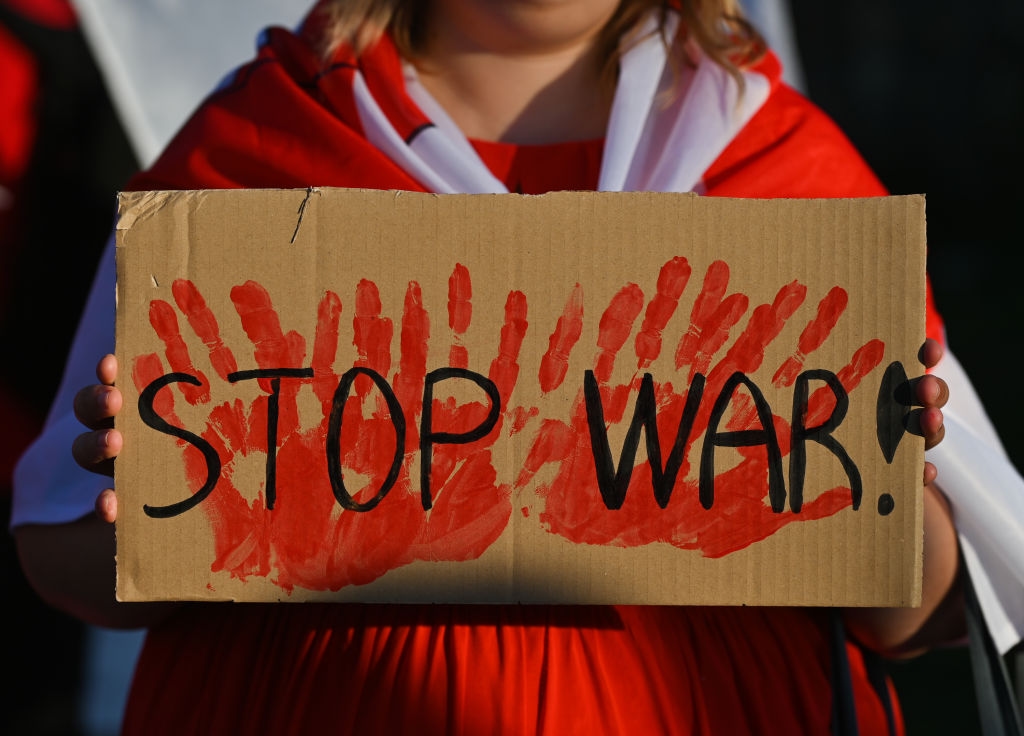
A Belarusian protester holding a placard with the words “Stop War!” Aug. 9, 2022, in Krakow, Poland. (Getty Images)
Lukashenko's regime continues to silence Belarusian civil society, activists
Belarusian journalist Dzianis Ivashyn, accused by Belarusian authorities of "treason" and "interfering in the activities of law enforcement officers," was sentenced to 13 years in jail on Sept. 14.
Experts note that the charges against Ivashyn are likely due to his latest investigation, which claimed that ex-Bekrut (former Ukrainian riot police under pro-Kremlin President Viktor Yanukovych) members were involved in dispersing protests during the fraudulent 2020 Belarusian presidential election.
Initially detained in March 2021, Belarus' KGB alleges that Ivashyn collaborated with Ukrainian intelligence.
Belarusian authorities also sentenced Siarhei Kanavalau, a former Belarusian railway employee, to 15 years in a penal colony on Sept. 16.
Kanavalau is accused of "terrorism" for having allegedly participated in disrupting the country's railway network in an attempt to stop the movement of Russian troops through Belarus amid Russia's full-scale war against Ukraine.
Political prisoner Stsiapan Latypau was sentenced to solitary confinement on Sept. 15 for swallowing a razor blade in protest against the ill-treatment of prisoners held at the Belarusian detention facility.
Those sentenced to solitary confinement are restricted to a single cell and are not permitted to move around the detention facility.
Belarusian authorities sentenced Latypau to 8.5 years in jail in 2020 on politically motivated charges.
There are numerous reports of political prisoners facing widespread abuse at detention facilities across Belarus – they often experience solitary confinement, are forbidden from corresponding with their families, and are marked with yellow tags indicating so-called "extremist involvement."

